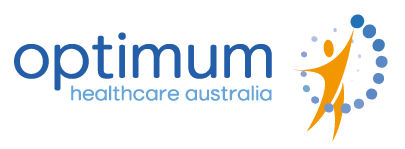The Benefits of Physiotherapy, Occupational Therapy, and Speech Pathology for NDIS Participants
The Benefits of Physiotherapy, Occupational Therapy, and Speech Pathology for NDIS Participants
For NDIS participants, allied health services—such as physiotherapy, occupational therapy (OT), and speech pathology—play a vital role in fostering independence, improving quality of life, and achieving personal goals. Each therapy has unique benefits tailored to address the diverse needs of people living with disabilities. Here’s a quick look at how each one supports NDIS participants:
Physiotherapy: Enhancing Mobility and Reducing Pain
Physiotherapy focuses on improving movement, strength, and physical function. For individuals with disabilities, a customized physiotherapy program can boost mobility, manage pain, and enhance overall well-being.
- Improved Mobility – Physiotherapists use exercises to increase strength and balance, allowing clients to move independently and safely.
- Pain Management – Physiotherapy techniques, such as manual therapy and specific exercises, can alleviate discomfort, enhancing daily comfort.
- Assistive Technology – Physiotherapists help clients choose and use mobility aids, such as walkers and wheelchairs, to increase their freedom.
Example: Sarah, who has cerebral palsy, improved her strength and balance through physiotherapy, enabling her to walk with a walker, which has boosted her independence and social confidence.
Occupational Therapy: Supporting Everyday Activities
Occupational therapy empowers clients to manage daily tasks independently, focusing on skill-building, environmental adjustments, and adaptive tools.
- Enhanced Daily Skills – OT helps clients with everyday tasks like dressing, cooking, and managing finances, enabling them to live more independently.
- Environment Modifications – OT may involve adjusting the home setup, such as adding grab bars or adaptive utensils, to improve accessibility.
- Social and Community Participation – OT can also support social skills, enabling clients to join in work, school, or community activities.
Example: Michael, a young man with autism, was initially overwhelmed by crowded spaces. With his occupational therapist’s help, he learned to use noise-canceling headphones and breathing exercises, allowing him to visit public spaces more comfortably.
Speech Pathology: Enhancing Communication and Swallowing Safety
Speech pathology helps individuals with challenges in communication, language, and swallowing, crucial for social connection and independence.
- Improved Communication – For non-verbal clients, speech pathologists may introduce alternative communication systems like picture boards or speech-generating devices.
- Language Development – Building language skills, from forming sentences to expressing emotions, is essential for relationships, education, and work.
- Swallowing Safety – For those with swallowing difficulties, speech pathologists provide techniques and exercises to support safe eating.
Example: Emily, who has Down syndrome, improved her speech clarity with therapy, helping her gain confidence and connect better with friends and classmates.
A Collaborative Approach for NDIS Participants
When combined, physiotherapy, OT, and speech pathology offer a comprehensive approach to care. For example, James, a stroke survivor, regained independence through a team effort: physiotherapy to strengthen his legs, OT to improve hand function, and speech pathology to restore his communication skills.
Optimum Healthcare’s Allied Health Services
At Optimum Healthcare Australia, we provide compassionate, client-centered care with no wait times. Our dedicated team works collaboratively to empower clients in all areas of life—mobility, daily activities, and communication—to help them achieve their goals and lead fulfilling lives.
For high-quality allied health support tailored to your needs, reach out to Optimum Healthcare today.
